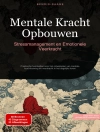This book explores the potential of Pan-African thought in contributing to advancing psychological research, theory and practice. Euro/American mainstream psychology has historically served the interests of a dominant western paradigm. Contemporary trends in psychological work have emerged as a direct result of the impact of violent histories of slavery, genocide and colonisation. Hence, this book proposes that psychology, particularly in its social forms, as a discipline centered on the relationship between mind and society, is well-placed to produce the critical knowledge and tools for imagining and promoting a just and equitable world.
Inhaltsverzeichnis
Chapter 1 Pan-Africanism and Psychology Resistance, liberation and decoloniality.- Chapter 2 Pan-Africanism Histories, synergies and contradictions.- Chapter 3 National identity, xenophobic violence and Pan-African psychology.- Chapter 4 African feminisms, Pan-Africanism and psychology.- Chapter 5 Institutional racism and the university in Africa: A focus on South Africa.- Chapter 6 Methodologies, ethics and critical reflexive practices for a Pan-African psychology.- Chapter 7 Towards a Pan-African psychology of restorative and reparatory justice.- Chapter 8 Concluding remarks: Can a Pan-African psychology address the wounds of slavery, colonization, and apartheid?.
Über den Autor
Shose Kessi is Associate Professor in the Department of Psychology and Dean of the Faculty of Humanities at the University of Cape Town.
Floretta Boonzaier is Professor in the Department of Psychology at the University of Cape Town and co-director of the Hub for Decolonial Feminist Psychologies in Africa.
Babette Stephanie Gekeler is Lecturer at the International Psychoanalytic University of Berlin.












